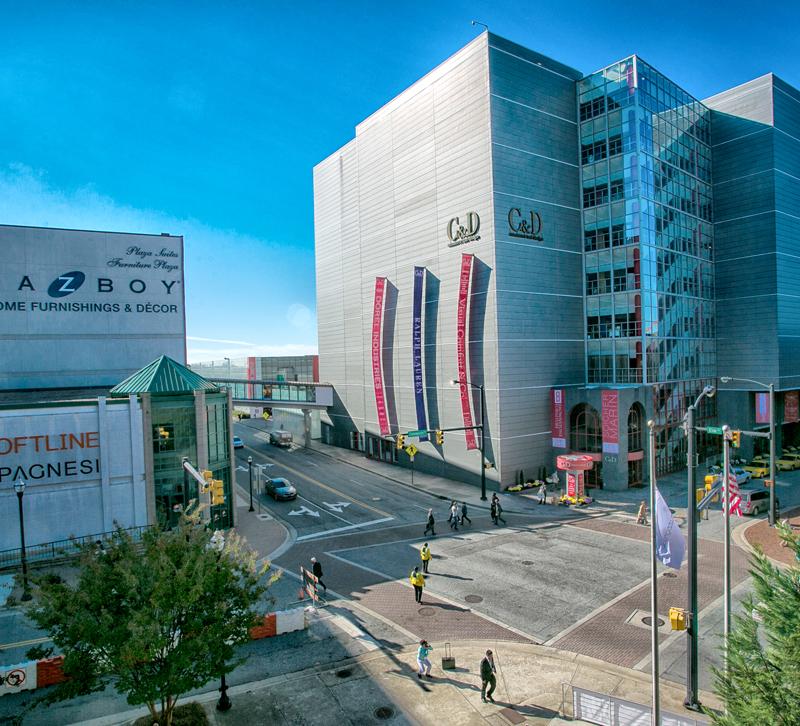North Carolina Gov. Roy Cooper (D) signed a repeal and replacement of the state’s controversial H.B. 2, which restricted which public restrooms transgender people could and could not use. The new law, which does keep some control over bathroom usage, comes just barely a month before spring’s High Point Market, which brings visitors from all over the country to High Point, NC.
“We are pleased by today’s vote in the General Assembly to pass a compromise bill repealing H.B. 2,” Tom Conley, President and CEO of High Point Market Authority, said in a prepared statement. “We have not yet had an opportunity to notify our customers and discuss the details of the bill with them, but we appreciate the leadership shown by Gov. Cooper, President Pro Tem Berger and Speaker Moore in finding a bill that would pass, and with support from both parties.”
This new law, H.B. 142, no longer requires transgender people to use the bathroom matching the gender listed on their birth certificates, but it does come with some provisions. Local governments cannot enact nondiscrimination ordinances for the next three years – right after the state’s next gubernatorial election – and they cannot regulate restrooms and other facilities to protect transgendered people’s equal access to public restrooms.
Lawmakers rushed to pass H.B. 142 when the NCAA announced it would not choose North Carolina to host any one of the next five championship games unless the discriminatory law was repealed. A recent analysis from The Associated Press showed that the controversial bill would cost the state $3.76 billion in lost revenue by 2028 through relocated sports games, concerts and company expansions.
But to many, H.B. 142 doesn’t fix the main problems of the original law.
“This is the end of H.B. 2 in name only,” Mara Keisling, Executive Director of the National Center for Transgender Equality, said in a press release. “The bill that was passed today is a disgrace — not a ‘fix,’ a ‘reset,’ or a ‘compromise,’ and certainly not a repeal. Putting any kind of moratorium on civil rights — whether six months or three years long — is dangerous and wrong. And signing this bill into law absolutely does not take North Carolina back to where it was before March 2016. Before last year, cities and towns around North Carolina were free to protect their residents from discrimination without the state sticking its nose where it didn’t belong. It is Gov. Cooper’s job to lead the state of North Carolina. The story of H.B. 2 and its disastrous consequences started with former Gov. McCrory, but the way it continues is on Gov. Cooper’s shoulders. Unfortunately, his decision to sign H.B. 142 today was a turn in the wrong direction.”
Mitchell Gold, co-founder and chairman of Mitchell Gold + Bob Williams, also expressed disappointment with the law.
“The aspiration of America is life, liberty and justice,” he says, “and liberty and justice for all means all. For an LGBTQ person, their liberty is in jeopardy when there aren’t laws to protect them in the workplace and housing and in society in general.”
Gold, who founded the non-profit Faith in America to “end decades and centuries of using religious teachings to justify marginalizing and discriminating against others,” rejects the fundamental argument of the law (to protect women and children form predators in bathrooms) and likens it to the bathroom segregation laws against African Americans in the 1960s.
“This whole business of bathroom is such a canard,” he says, adding that this law is just another tool to get to people’s vulnerabilities.
At press time, boycotts of High Point Market have not resurfaced, and many market goers do want to support manufacturing companies that have taken stands against LGBTQ discrimination, such as Mitchell Gold + Bob Williams, and avoiding those who have donated to lawmakers who support discriminatory practices. For those still looking to show support, Gold recommends buying products strictly from these manufacturers.
Interested market goers can look up who manufacturers have donated to at the Center for Responsive Politics website, opensecrets.org, for more information.







